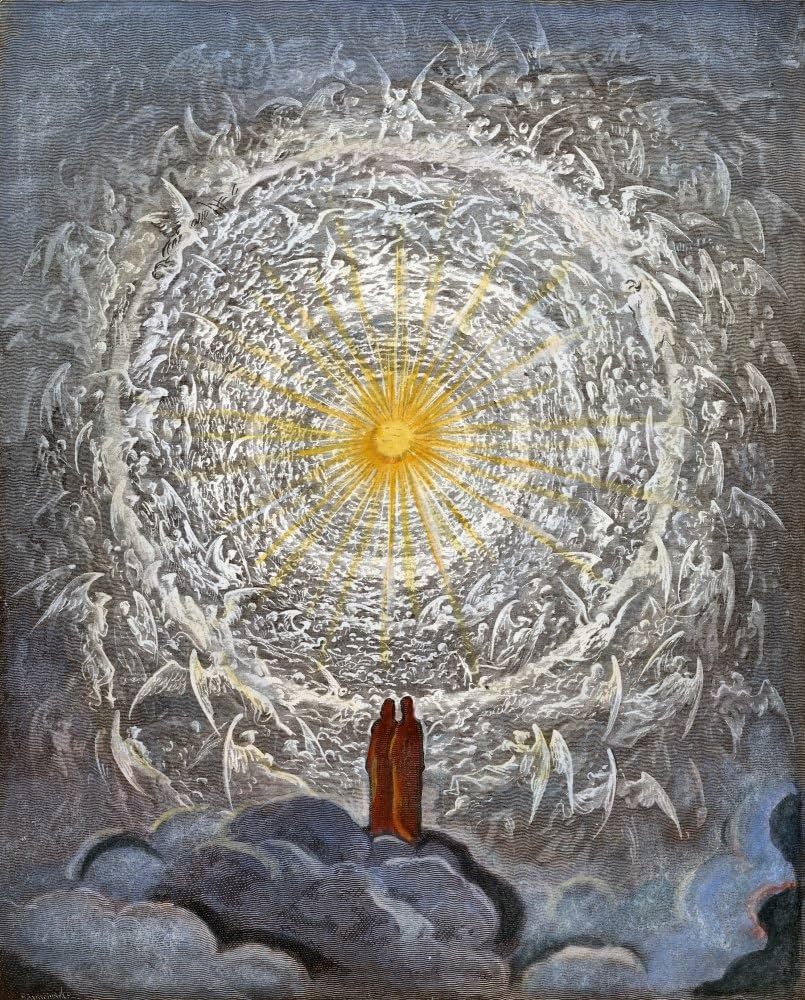Note: If you wish to receive, via e-mail, (1) my weekly newsletter or (2) daily copies of these posts, notify me at rrbates1951@gmail.com and indicate which you would like. I promise not to share your e-mail address with anyone. To unsubscribe, send me a follow-up email.
Friday
In yesterday’s Thanksgiving sermon, our seminarian Michael Sturdy spoke about God’s greatest gift to us. Reflecting on Paul’s second letter to the Corinthians (9:6-15), Michael essentially said that, when we open our hearts to God, the gift we get back is an open heart. In other words, offering up thanks is not for God’s benefit. It’s for our own.
After the service, I mentioned to Michael that this is a truth that Satan in John Milton’s Paradise Lost fails to understand. Because he has made his ego his god and has projected this outward, Satan thinks God is a being that hungers for praise. By the same reasoning, he thinks that, when one praises God, one diminishes oneself. The passage I have in mind occurs in Book IV when, in a rare moment of introspection, Satan questions why he rebelled. After all, what could be easier than praising God?
He deserved no such return
From me, whom he created what I was
In that bright eminence, and with his good
Upbraided none; nor was his service hard.
What could be less than to afford him praise,
The easiest recompense, and pay him thanks,
How due?
Satan, however, wants all this praise coming to him. Being, as archangel, one step below God, he longed to be the highest. He also experiences “endless gratitude” as a burdensome debt that can never be paid back. In other words, he sees God, as creator, using gifts to reinforce His/Her superiority:
Yet all his good proved ill in me,
And wrought but malice. Lifted up so high,
I ’sdained subjection, and thought one step higher
Would set me highest, and in a moment quit
The debt immense of endless gratitude,
So burthensome, still paying, still to owe…
What Satan has forgotten, he admits, is that God’s gift doesn’t work this way. When we pay with our prayers of thanksgiving, the debt is automatically discharged. “A grateful mind,” Satan says, “by owing owes not” and so “what burden then?”
Forgetful what from him I still received;
And understood not that a grateful mind
By owing owes not, but still pays, at once
Indebted and discharged—what burden then?
We only feel like poor debtors if we’re not grateful. Once we pour out thanks, we realize that doing so brings us ecstatic joy. Which is what God (or, if you will, the universe) has wanted for us all along.
Milton takes a stab at describing this ecstatic joy in the dance of the angels. Perhaps Dante’s Paradiso (see illustration above) is Milton’s inspiration here:
No sooner had th’ Almighty ceased, but all
The multitude of angels with a shout
Loud as from numbers without number, sweet
As from blessed voices, uttering joy, Heav’n rung
With jubilee, and loud Hosanna’s filled
Th’ eternal Regions…
And then there is there harp playing—which, as any musician will tell you, is its own reward:
[T]heir golden harps they took,
Harps ever tun’d, that glittering by their side
Like quivers hung, and with preamble sweet
Of charming symphony they introduce
Their sacred Song, and waken raptures high;
No voice exempt, no voice but well could join
Melodious part, such concord is in Heav’n.
In short, giving general thanks for all our blessings is a lot of fun. Whereas keeping account of who owes what to whom is the quickest way to internal hell.
Or as Satan puts it a few lines later,
Me miserable! which way shall I fly
Infinite wrath, and infinite despair?
Which way I fly is Hell; myself am Hell;
And, in the lowest deep, a lower deep
Still threatening to devour me opens wide…
If you celebrated Thanksgiving yesterday, I hope you had a chance to experience the heaven that comes with expressing gratitude. And if, instead, you chose to spend the holiday in jealous resentment—well, that is the “lowest deep” that can devour you utterly.


